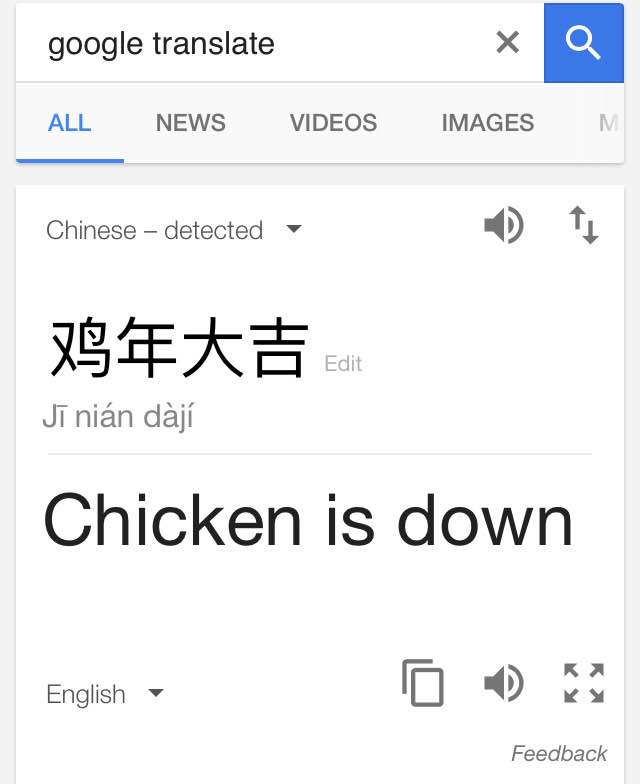Archive for Translation
March 8, 2017 @ 11:35 am· Filed by Victor Mair under Language and politics, Multilingualism, Signs, Slogans, Translation
There are multilingual signs all over Swarthmore (where I live) that say "Hate Has No Home Here". The signs are printed in six languages: English, Urdu, Hebrew, Korean, Arabic, and Spanish. I wondered about the choice of languages, but — with a little googling — I found that these are apparently the languages most commonly spoken at Petersen Elementary School in the North Park neighborhood of Chicago, where the campaign to post these signs originated. It's interesting that the linguistic mix of an elementary school in Chicago determined the multilingualism of signs that are being posted all over the country.
Incidentally, there is also a #LoveThyNeighbor (No Exceptions) campaign going on, and here I wondered about the archaism of the "Thy". It seems to me that the King Jamesian language of these signs conveys clear Christian overtones, which may account for the fact that there are far fewer of these signs around than the HHNHH signs.
"Hate" is also a hot topic in China these days.
Read the rest of this entry »
Permalink
March 3, 2017 @ 11:46 am· Filed by Geoffrey K. Pullum under Errors, Fieldwork, Language and the movies, Linguistics in the news, The academic scene, The language of science, Translation
This is a guest post submitted by Nathan Sanders and colleagues. It's the text of an open letter to Neil deGrasse Tyson, who made a comment about linguists on Twitter not long ago.
Dr. Neil deGrasse Tyson,
As fellow scientists, we linguists appreciate the work you do as a spokesperson for science. However, your recent tweet about the film Arrival perpetuates a common misunderstanding about what linguistics is and what linguists do:
In the @ArrivalMovie I'd chose a Cryptographer & Astrobiologist to talk to the aliens, not a Linguist & Theoretical Physicist
Neil deGrasse Tyson (@neiltyson), 1:40 PM – 26 Feb 2017
Read the rest of this entry »
Permalink
February 28, 2017 @ 11:55 pm· Filed by Victor Mair under Language and religion, Translation, Vernacular
Whether you are familiar with Chinese characters or not, try to guess the meaning of the calligraphy on the front of this forthcoming book (the answer is at the very end of this post):

Read the rest of this entry »
Permalink
February 23, 2017 @ 10:46 pm· Filed by Victor Mair under Language and sports, Translation
Here on Language Log, we have devoted a considerable amount of attention to the terminology related to kungfu:
"Kung-fu (Gongfu) Tea" (7/20/11)
See also Ben Zimmer's masterful article on Visual Thesaurus:
"How 'Kung Fu' Entered the Popular Lexicon" (1/17/14)
Now we have documentation for another type of kungfu that has hitherto eluded us:
(YouTube video here.)
Read the rest of this entry »
Permalink
February 18, 2017 @ 9:40 am· Filed by Victor Mair under Acronyms, Borrowing, Names, Translation
[This is a guest post by Nathan Hopson]
Yes, the following image from the most recent Weekly Playboy (週刊プレイボーイ Shūkan Pureibōi; not a regional edition of Hugh Hefner's Playboy), is labeled "Poop":

Read the rest of this entry »
Permalink
February 18, 2017 @ 9:35 am· Filed by Victor Mair under Humor, Transcription, Translation
A friend of Anne Henochowicz spotted this T-shirt in an Akihabara, Tokyo shop:

Read the rest of this entry »
Permalink
February 13, 2017 @ 5:38 pm· Filed by Victor Mair under Language and the media, Mishearing, Translation
In his meeting with Japanese Prime Minister Shinzō Abe, President Trump received contradictory instructions about where to look.
Read the rest of this entry »
Permalink
February 9, 2017 @ 1:24 pm· Filed by Victor Mair under Names, Puns, Transcription, Translation, Writing systems
Boris Kootzenko was intrigued by this sign in China:

Read the rest of this entry »
Permalink
February 7, 2017 @ 7:11 pm· Filed by Victor Mair under Swear words, Translation
Here and here are links (South China Morning Post [SCMP] and the Chinese website of a German radio channel) re yesterday’s surprising statement by Judge HE Fan of China’s supreme court calling President Trump a "public enemy of the rule of law".
The story is being well covered by the international media (NYT, The Independent, ABC News), so I won't repeat all the details readily available there. Here I wish only to concentrate on a term of disapprobation that Judge He applied to Trump when he referred to him as “ègùn 恶棍”, which SCMP translates as “bastard”.
Read the rest of this entry »
Permalink
January 29, 2017 @ 8:38 am· Filed by Victor Mair under Borrowing, Diglossia and digraphia, Language and computers, Style and register, Topolects, Translation
The inability of Google Translate, Microsoft Translator, Baidu Fanyi, and other translation services to correctly render jī nián dàjí 鸡年大吉 ("may the / your year of the chicken be greatly auspicious!") in various languages points up a vital distinction that I have long wanted to make, and now is as good a time as ever. Namely, just as you could not expect these translation services to handle Cantonese, Shanghainese, Taiwanese, etc. (unless specifically and separately programmed to do so), we should not expect them to deal with Literary Sinitic / Classical Chinese (LS / CC).
Read the rest of this entry »
Permalink
January 28, 2017 @ 12:27 pm· Filed by Victor Mair under Idioms, Language and culture, Tones, Translation, Writing
From Li Wei on Facebook:

Read the rest of this entry »
Permalink
January 17, 2017 @ 11:33 pm· Filed by Victor Mair under Errors, Grammar, Signs, Translation
[This is a guest post by Nathan Hopson]
I know you've written a lot about character amnesia in the greater Sinosphere. But I think I witnessed the related, but significantly different, phenomenon of (grammatical) particle amnesia (or perhaps, "drift") during a recent trip to Hawaii.
As you know, Hawaii has a large nikkei* population. This is especially true in and around Honolulu, where I was for the Japanese Studies Association conference last week. In addition to an extraordinary number of Japanese tourists, Oahu is home to nisei,** sansei,*** and many people of mixed heritage. Japanese signs abound, and Japanese is spoken in many hotels, restaurants, and stores.
[*an American of Japanese descent.]
[**second generation; ***third generation]
Read the rest of this entry »
Permalink
January 14, 2017 @ 12:07 am· Filed by Victor Mair under Slogans, Translation
Photograph taken by Hervé Guérin in the main lobby of IBM France:

Read the rest of this entry »
Permalink





